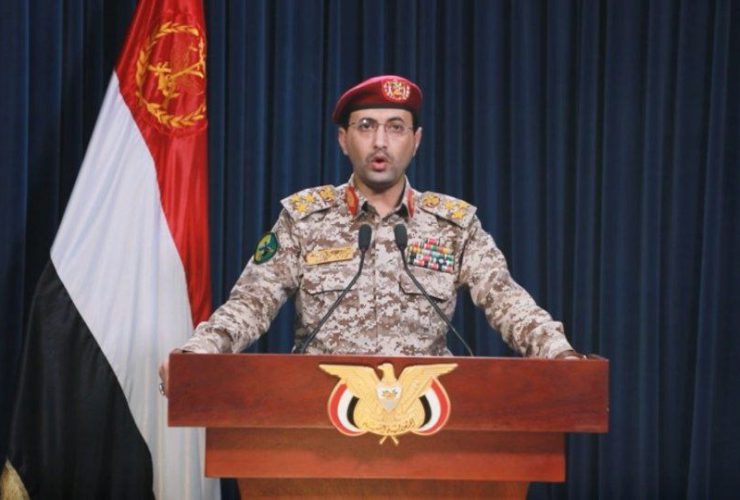Summary of Information on Jihadist Websites November 2017
Highlights
- Sheikh Ayman al-Zawahiri, the leader of Al-Qaeda, notes that Al-Nusra Front’s disengagement from Al-Qaeda following the consent of the latter did not achieve its goal in the war effort against the Syrian regime. In addition, al-Zawahiri calls on Al-Qaeda fighters in Syria to cooperate with various jihad factions, excluding the Islamic State (IS), and to maintain unity among the ranks of jihad fighters in Syria. In the same speech, al-Zawahiri eulogizes the Blind Sheikh, Omar Abdel-Rahman, who died in the beginning of 2017 in a US prison, and calls for the continuation of his path, namely the continuation of jihad operations against the US.[1]
- Hamza bin Laden, son of Al-Qaeda founder and leader, Osama bin Laden, praises his late father for his success in instilling in the consciousness of the Muslim Nation the importance of fulfilling the commandments of jihad against the enemies of Muslims and Islam, the obligation to liberate Muslim lands from the Crusader hegemony, the application of Islamic shari’a and the desire to live under it. Alongside this, Hamza calls on oppressed Muslims to revolt against America’s tyrant allies through armed intifada. In addition, Hamza calls on Muslims to take revenge against Americans for killing his father, especially those responsible for the assassination.
- Ustaz Usamah Mahmud, a senior leader in Al-Qaeda in the Indian Subcontinent, declares that the goal of his organization is to promote jihad activities against Pakistan, Kashmir, India, Bangladesh and other countries in the Indian Subcontinent, as well as against the Crusaders, the Zionists, anti-Islamic activists, polytheists and the secular. According to him, the US is considered the main enemy and, therefore, its interests in the Indian Subcontinent should be attacked. According to him, India and Bangladesh are also considered enemies against whom effort should be focused, as well as the Pakistani regime and security forces.
- Hayat Tahrir al-Sham announces that it arrested several Al-Qaeda fighters in Syria and that it intends to put them on trial for undermining the stability of Hayat Tahrir al-Sham. The arrests lead to a rift among Hayat Tahrir al-Sham. On the one hand, there are those who justify the arrests, such as Abu Malek al-Shami, who explained that the arrests took place after the detainees refused a reconciliation plan proposed to them by the leadership. On the other hand, a number of senior Hayat Tahrir al-Sham officials threaten to quit the organization if the detainees are not released immediately.
- Abdul Rahim Atun, a senior member of Hayat Tahrir al-Sham, criticizes the correspondence between Al-Qaeda and jihad fighters in Syria, the content of which he claims is leaked by their messengers. At the same time, he defends the decision by Al-Nusra Front to disengage from Al-Qaeda towards the end of 2016. In addition, Atun defends the arrests of Al-Qaeda fighters in Syria by Hayat Tahrir al-Sham, claiming that they were carried out against the backdrop of Al-Qaeda’s intention to harm the organization.
In response, Abu ‘Abdllah, the person responsible for the foreign relations of Al-Qaeda’s leadership, criticizes Atun’s statements and denies his accusations. For example, he claims that Al-Nusra Front itself was responsible for the leak of the contents of the correspondence between jihad fighters. At the same time, Abu ‘Abdllah reveals that Ayman al-Zawahiri had appealed to the leader of Hayat Tahrir al-Sham to keep in frequent contact in order to improve the speed of their correspondence, but this appeal was not answered.
- “The Committee Overseeing the Reconciliation Initiative” between jihad factions in Syria, the result of an initiative by eight Salafi-jihadist sheikhs affiliated with Al-Qaeda, urges Hayat Tahrir al-Sham to agree to the reconciliation initiative as soon as possible and not to delay the matter, so that the reconciliation mechanisms can be activated immediately. Toward the end of November, the above-mentioned committee publishes the guidelines in the framework of the reconciliation, such as the cessation of the use of defiant expressions among the factions, the bringing of painful issues for discussion among religious scholars, and more, and it expresses disappointment that Hayat Tahrir Al-Sham has not yet responded positively to the reconciliation initiative.
- Supporters of Al-Qaeda in the Islamic Maghreb threaten to attack the presidents of the five countries belonging to the G5 Sahel Joint Force, including Mali, Mauritania, Niger, Burkina Faso and Chad, because of their willingness and intention to assist France in the war against jihad fighters in the Sahel region.
- A new jihad faction in Syria named Al-Malahim, which is affiliated with Al-Qaeda, announces its establishment following the departure of its fighters from Hayat Tahrir al-Sham and following disagreements with the latter’s leadership. However, Al-Malahim makes it clear that it intends to cooperate with the various jihad factions, including Hayat Tahrir al-Sham, in the battle against the Syrian regime.
- Abu Muhammad al-Salafi al-Sinawai, a Salafi-jihadist fighter in the Sinai Peninsula, accuses the Islamic State in the Sinai Peninsula of killing innocent residents and of violating their rights and livelihood, as well as those of the residents who join the organization. According to him, ignorance and a lack of familiarity with the holy sources of Islam are characteristic of IS fighters.
 This article is part of the RED-Alert project, funded by the European Union’s Horizon 2020 research and innovation Programme under grant agreement No 740688.
This article is part of the RED-Alert project, funded by the European Union’s Horizon 2020 research and innovation Programme under grant agreement No 740688.






